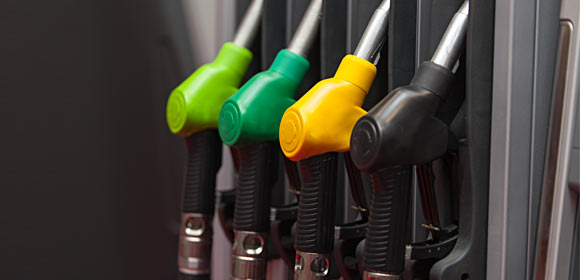Six ways to reduce your fleet's fuel spend
17/05/2017 00:00:00by Mark McKenna17/05/2017 00:00:00Six ways to reduce your fleet's fuel spendBluedrop Services


After vehicle depreciation, fuel spend is one of the largest fleet expenses which is why it is important to understand all the ways you can help to reduce your fleet’s fuel spend.
In fact, when compared to other factors such as fleet insurance premiums, fleet management, leasing costs and maintenance, it represents around a third of a fleet’s operating expenses on average so any amount of savings in this area will be welcomed.
Consider preventative maintenance
By ensuring that your fleet runs a preventative maintenance program you can look to improve a vehicle’s fuel economy by up to as much as 40%. Making sure that your vehicles are kept in good running order will help to conserve fuel as well as enhancing the safety of your fleet.
Preventative maintenance can help to prevent possible accidents, but also can help to reduce any unscheduled downtime repair costs by up to 25%.
One of the main considerations is ensuring that you have regular oil changes with the manufacturer’s recommended grade of oil. In addition to this use of lower oil viscosity requires less energy to circulate through the vehicle, therefore leading to improved fuel economy.
Tyre checks
Maintaining the correct tyre pressure is one of the most important aspects of fuel economy. Studies have shown that for every psi drop in pressure below the recommended amount you can lower your gas mileage by 0.4%.
Tyres are also more likely to fail or risk blowouts when they are operating at the incorrect pressure during high temperatures, typically within the summer months. So, to help prevent accidents or unplanned maintenance, maintaining tyre pressure is important.
Whilst Tyre Pressure Monitoring Systems (TPMS) can help as they will alert you when the tyre pressure falls by as much as 6-7 psi, regular checks are the best approach, especially prior to long journeys.
In addition to tyre pressure, don’t forget to also ensure proper wheel alignment which be just as important and can increase fuel efficiency by as much as 10%.
Rightsizing your fleet
Rightsizing your fleet vehicles can be one of the quickest methods of reducing your fuel costs. By replacing aging vehicles for those with smaller engines and better fuel economy significant savings can be made.
Alternative fuel models and choosing those vehicles that are lower in overall weight can all help towards fuel economy. In addition to rightsizing your vehicles you should regularly check that your company vehicles are not carrying too much unnecessary weight.
An extra 100lbs in weight can reduce a vehicles mpg by almost 1% and can have a big impact on fuel consumption.
Utilising company fuel cards
Once employees are held accountable for their fuel expenditure, and data is recorded and analysed using fuel cards, significant savings can be made. By aligning your fleet to a specific fuel provider, you can benefit from reductions in costs as well as keeping a closer eye on expenditure.
Compared to a pay and reclaim systems, where false claims are common, there is less chance of excessive fuel consumption with company fuel cards.
Introducing route tracking
Understanding and tracking the routes that your fleet drivers are taking is a key element to reducing your fuel expenditure. Being able to locate the closest driver to the next delivery will reduce any expenditure on excess mileage from drivers located further away.
With a good GPS device and mapping and routing software you will also be able to allocate the most efficient route and cut out any unnecessary mileage.
Monitoring driver behaviour
The way your fleet drivers drive your vehicles has a huge effect on fuel economy. Speeding, rapid acceleration and harsh braking all reduce fuel efficiency by up to 33%. Drivers should be reminded to observe the speed limits and behaviour can be monitored by use of telematics to help ensure driving is not erratic and considered safe as well as fuel efficient.
Idling a vehicle can also waste up to 0.5 gallons her hour. Avoiding unnecessary idling can improve your overall fuel efficiency by as much as 4% and anything over 30 seconds of idling will use more fuel than simply turning off and re-starting the engine.
A strong foundation of fleet policy and continued training can help to ensure that fuel economy and safe driving is at the forefront of your driver’s minds. As you can see there are many things that your drivers can do to reduce overall fuel costs which will also increase safety and sustainability for the business.Return to blog menuWant to find out more about Bluedrop's Motor Fleet Insurance?
Call our friendly team now for the right insurance cover - at the best price
+441489780491
Calls recorded for training and quality.



 Privacy and Cookie Policy
Privacy and Cookie Policy